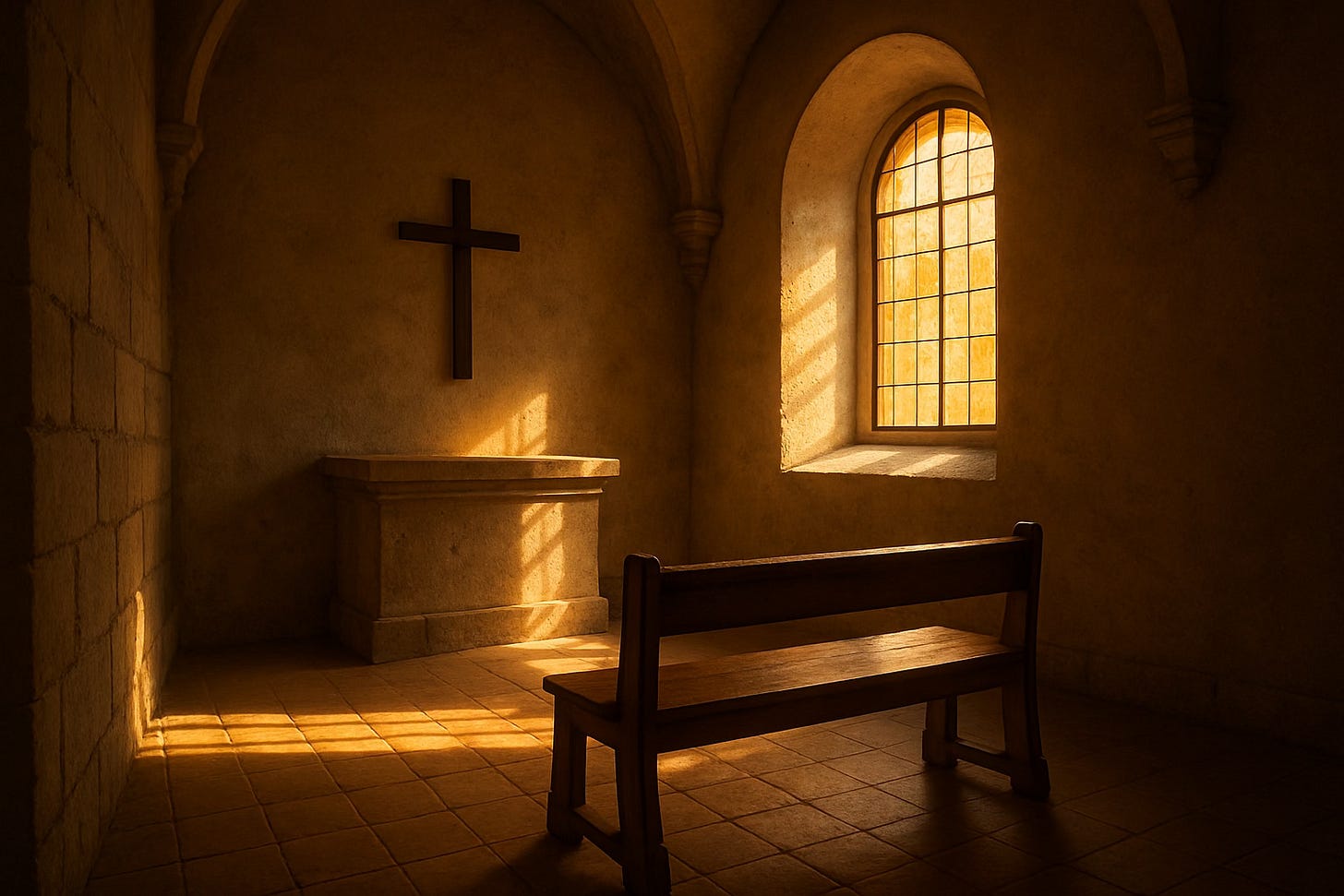When Faithfulness Is Mistaken for Rebellion
For those still believing, hoping, and following Jesus — but finding themselves on the margins of the church
This reflection was originally published on Medium under the “Even Here” publication.
Read it there → Even Here
I’ve come to learn that for many people, the churches that once shaped their faith with vision and courage have slowly become places of caution and control. The call to follow Jesus has been overshadowed — sometimes subtly — by the pressure to preserve systems and maintain certainty.
I didn’t always see it that way. But as I listen to others’ stories — and reflect on my own slow shift — I’m beginning to understand why so many feel displaced, even when they still believe.
There’s a certain kind of discomfort that words can’t quite reach.
It’s the ache of still believing, still hoping, still following Jesus — and yet finding yourself suddenly on the margins of the very faith community you once called home.
I know that tension. Maybe you do too.
There is wisdom in boundaries, I get that. Tradition, shared practices, and community expectations can provide needed guardrails. They give structure to faith and shape a sense of belonging. They protect us — at least in theory.
But these same boundaries can also become walls. Not just to keep people safe, but to keep people in — confined by fear, pressure, or silence — and to keep others out, excluded for asking the wrong questions or not fitting the mold.
And humans being humans, we don’t just draw lines. We weaponize them. We categorize people into insiders and outsiders, faithful and suspect, safe and threatening. And suddenly, those of us trying to ask questions or walk a different path — not to reject Christ but to follow him more authentically — feel the weight of being misunderstood.
That fear — of being perceived as heretical — stings.
Not because anyone has openly said it. Most won’t. But it lingers in the silences, in the side glances, in the sudden distance from those who once trusted you.
It’s the unspoken suspicion that because you’re asking certain questions, or stepping outside familiar theological categories, you’ve somehow crossed a line.
And that fear cuts deep.
Not because it makes you doubt your faith, but because it misjudges your intent.
We’re not trying to abandon the church or water down the gospel.
We’re not trying to be rebellious for rebellion’s sake.
We’re just trying to be faithful — still seeking, still believing, still following Jesus, even if the road looks unfamiliar.
This is the paradox:
We are called to faithfulness, and yet our efforts to be faithful are sometimes misunderstood as defiance.
We are seeking truth, and yet our questions are quietly seen as disloyalty.
And so we find ourselves among the misunderstood. The questioned. The gently distanced.
And strangely enough, in this space of discomfort and ambiguity, we begin to realize:
This is where Jesus often was.
This is where Jesus still is.
A Different Way?
I’m not trying to discard the church. I’m not rejecting tradition. I didn’t grow up rooted in creeds or formal liturgies, but over time I’ve come to appreciate the beauty and wisdom in the broader Christian tradition — the prayers, the rhythms, the stories passed down. I once swung far to the other side, but now I find myself settling into a more integrated middle — honoring what came before without being bound by it.
But maybe the invitation is to hold all of it less tightly.
Not with suspicion, but with humility.
Not with fear, but with trust.
Not with clenched fists, but with open hands.
What would that look like?
It would mean:
Holding theological frameworks as a compass, not a cage
Welcoming mystery, not as a threat to faith, but as a feature of it
Making space for voices at the edge, not just those at the center
Naming the grief of theological dislocation while still hoping for a more generous way
It would mean honoring the tradition that brought us here without being bound by the limits it inherited.
Still Faithful
I write this not as someone who’s figured it out, but as someone in the middle of the tension.
I still believe in Jesus. I still trust in God’s faithfulness. I still long for the Spirit to guide.
But I’ve come to realize that this journey may look different than I once thought.
And that’s okay.
Because maybe faith isn’t about staying in the lines.
Maybe it’s about trusting the One who draws the true lines — and who sometimes crosses the ones we’ve drawn, just to reach us.
So to those of you wrestling with the same questions, feeling the same displacement:
You’re not alone.
You’re not heretical.
You’re not unfaithful.
You may just be following Jesus a little more honestly than others are comfortable with.
And even here, in the tension, in the margins — this too is holy ground.
Reflection Question
What unspoken fears do you carry about how others might perceive your evolving faith? How do you hold those fears alongside your desire to stay faithful?



